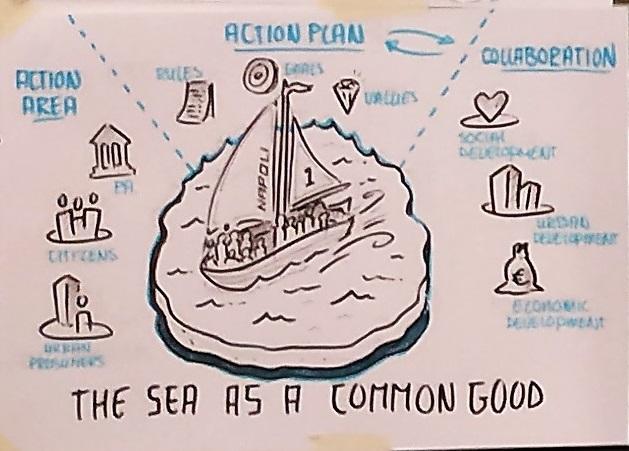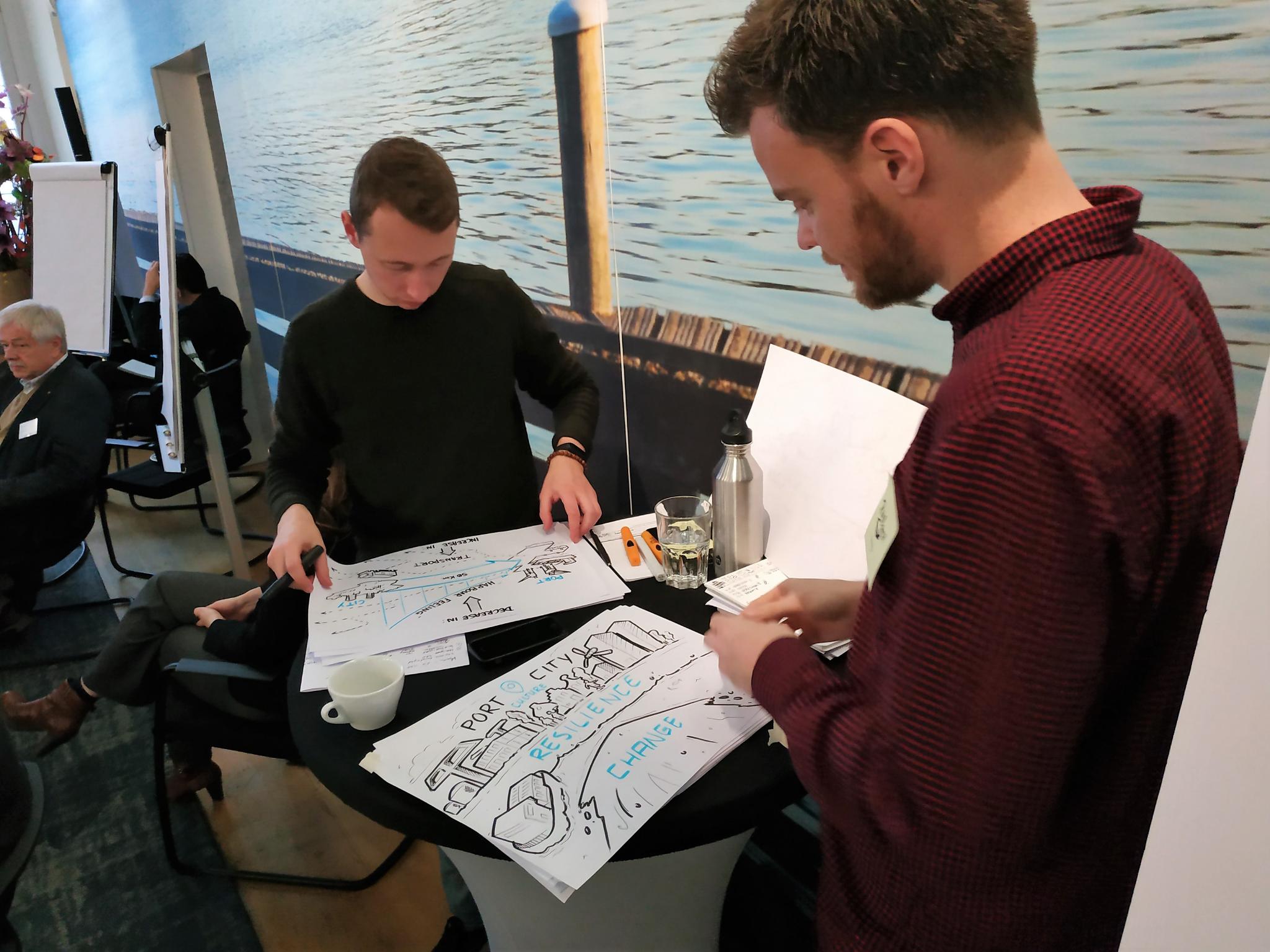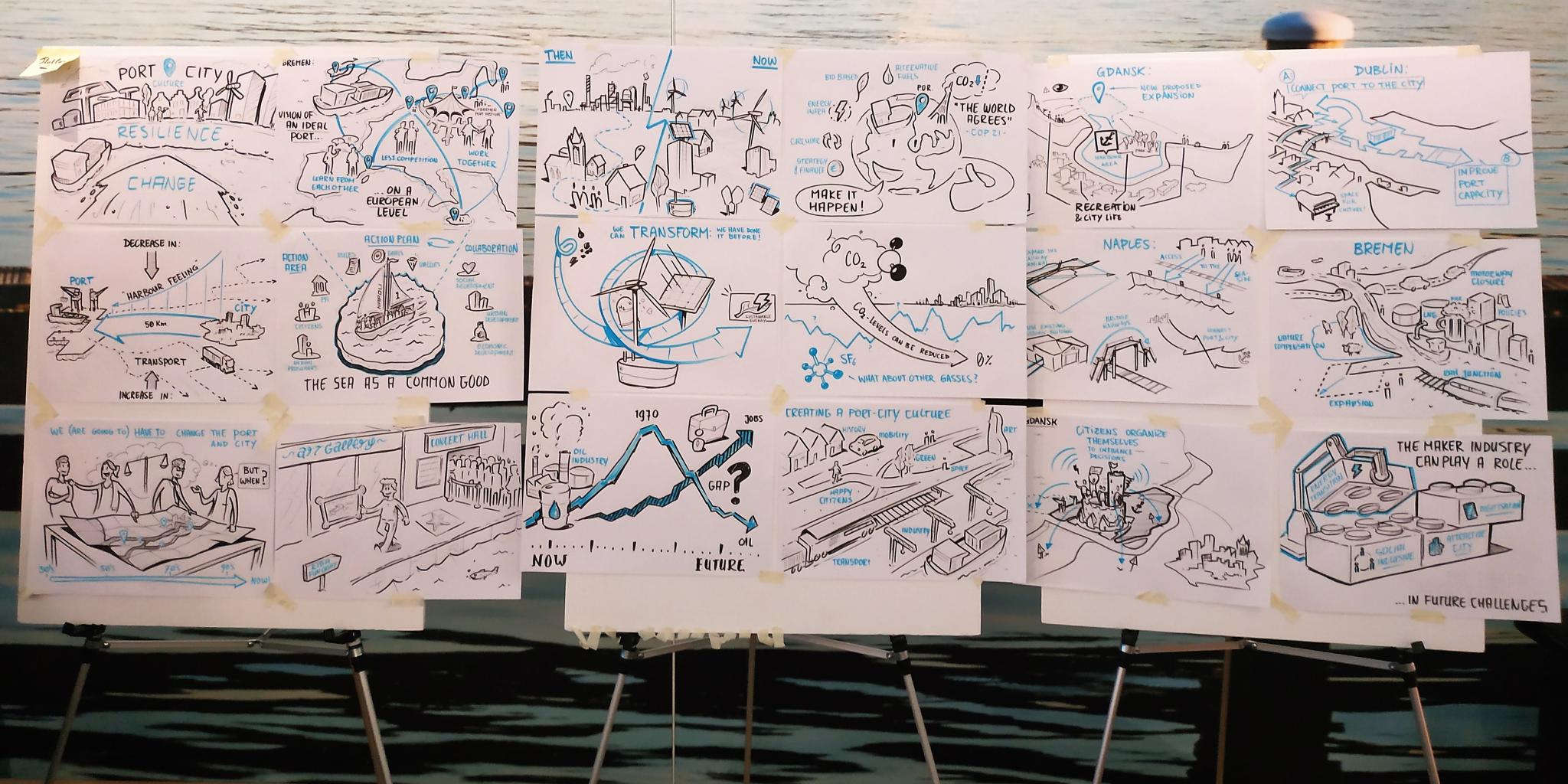
Report on the Port City Futures Conference (Rotterdam, 17-19 Dec 2018) by student reporter Paraskevi Makridou
The manifold relations between port, cities and their regions were the theme of the “Port City Futures” conference, a partnership between Delft and Erasmus University, which took place in December 2018. During the three-day conference, a great number of port and city academics and stakeholders from Naples, Rotterdam, Bremen, Dublin, Gdansk and Riga were invited to join their forces and set a new research agenda that will allow the two dynamics of port and city to evolve side-by-side in an equal relationship in the limited space available.
The interactive character of the conference that included a guided excursion at the port of Rotterdam and round table discussions stimulated the exchange of ideas in search for solutions to shared problems. By looking at the past and learning from it, the discussions were focused on the current and future challenges that port, cities and regions are facing and the participants had the chance to share their individual experiences from a key stakeholder point of view. Every speaker highlighted a different aspect that emerges in the port, city and region landscape such as energy transition, climate change, education, new technologies and history. Commonly addressed was the spatial fragmentation and division between the port and the city which makes the port irrelevant to the city and vice versa. In addition, representatives from Naples, Gdansk, and Dublin stressed the difficulties that modern cities are facing to connect their busy growing port to the ancient part of the city. Emphasized was the fact that a port is not only infrastructure; it is a multifunctional system that connects the city to the world. Therefore we should embrace it, make it a symbol of the city and find new ways to enhance the life of the citizens through it. The creation of new lifestyles for waterfront recovery and urban regeneration was considered essential for speakers representing Rotterdam, Bremen and Riga. In their view, collaborative planning could operate as a mediator for both economic and community development. A great many participants also advocated the emergency for environmental action. Reducing the environmental impact of the ports would require the implementation of a number of strategies that will encourage the use of new technologies for sustainable development. Above all though, all speakers agreed that contemporary urgencies call for educated decisions. Thus, educating the different stakeholders is considered critical to generate a common understanding on the growth and value of ports. The growing demand for maritime knowledge, based on the increase of maritime museums popularity in recent years, is making evident that ports and maritime landscapes are affecting directly the lives of many people.

During the second day of the workshop participants were called to problematize and prioritize between seven elements (work, education, mobility, living, heritage, port regions, and waterfronts) and values (innovation, attractivity, cooperation, sustainability, inclusiveness, efficiency, enterprising) that they would like to include in their agenda and planning policies and share their views in an open discussion. The elements of living/education and the values of cooperation/inclusiveness prevailed shaping the outcomes of the conference.
The solution to contemporary challenges may lie in the creation of a port city culture where industry, culture, art, space, happy citizens, greenery and history can co-exist. To achieve that, the creation of a methodological framework that will establish shared rules, shared goals and shared values is important for urban, social and economic development. Although there is a growing interest in the cultural heritage of ports since 2000s, the role of heritage in the effort to shape a port city culture could be greater. We could use tools from Heritage Management and teach the values of collaboration and inclusiveness for a balanced living, having the sea in mind as a common good. What we should learn from the past is the importance of humanities in dealing with port expansions and subsequent major spatial and social transitions.

